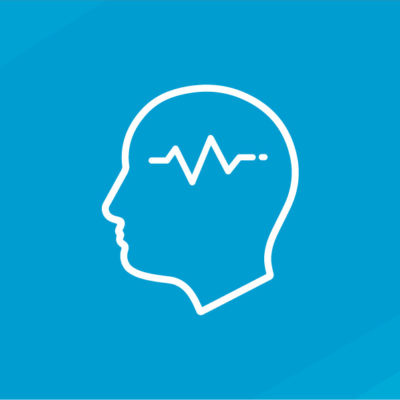Student Centered Learning and Homeschooling
Student Centered Learning (SCL) as a teaching methodology has risen in popularity in recent years as a means of combating “teach to test” mentalities. It is defined by placing the student at the center of the education experience by allowing students to decide what they study, encouraging collaboration, applying the material to real world problems, and allowing flexibility in learning. SCL practitioners often argue that this pedagogy helps students enjoy school more, retain more information over longer periods of time, learn how to work with others, and better prepare them for the future through showing the real life applicability of the material. This blog post explores the potential benefits of Student Centered Learning and how homeschooling naturally dovetails with this pedagogy. Worried about what your student might learn in an online classroom? Don’t worry! This blog post also shows how Excelsior teachers help students achieve these goals in an online setting, too!
What Is It and Why Does it Matter?
While the definition of SCL can perhaps be a bit vague upon an initial reading, it boils down to two basic approaches to teaching. At its heart, SCL seeks to move away from the teacher as lecturer to the teacher as a facilitator, or student-centered, community-based teaching. It accomplishes this first through centering what the student wants to learn and then having students collaborate to learn the material. SCL hopes to take the student’s interests into account and teach the student how to use the material to solve real world problems and increase material retention.
The value of the end goals of SCL are obvious. The purpose of education should not be to learn material in a vacuum or extricate the information from real life situations. For many, the purpose of an education is to assist students in learning about the world around them in hopes of cultivating wonder and an ability to understand the world, and to better be better able to function in that world.
Using SCL as a pedagogical method, students get to decide what they want to focus on, which allows students to do a deep dive into the research that he or she enjoys most. For instance, are you studying the ocean? Some students may want to study the impact of plastic on the ocean, another may want to research whale migration, and a third may want to study how people in the past used the ocean. When this happens, students become excited about the material and are more likely to remember the material long after the class has finished.
Potential Benefits of SCL
There are many potential benefits of SCL. Through this methodology, SCL hopes to increase a student’s retention of the material, build critical thinking skills, and build the ability to apply the material to real world situations.
SCL first has the potential to cultivate an excitement about learning and thus agency over learning the material. If a student is allowed to center their interests in the learning process, then he is more likely to find school exciting and enjoyable. When a student finds school an exciting experience, then she is more likely to take responsibility for her learning experience and work harder in that environment.
SCL has the potential to teach students how to better apply the information to real life situations. A classroom which works to display how the information can apply to real life situations shows students why that material matters. When students see the links between the classroom and life, students are more willing to engage with the information.
When teachers link passion for the subject and recognition of the material’s real world applicability, students are more likely to retain the information over a longer period of time. Any person who has reviewed their school notes a year after taking a class is woefully dismayed by how little he or she remembers. Yet, excitement about a subject and an ability to use that information when looking at the world makes a person far more likely to retain that information over a longer period of time.
SCL can allow students to develop both their own interests and the ability to collaborate with others. When students are able to explore their own interests, they are able to develop idea of what they might want to do for career in the future without having to wait until late high school or early college to discover one’s interests and skills. SCL also helps students build their teamwork skills. When teachers use SCL, the classroom becomes a collaborative arena and students are asked to learn how to work with others, do their fair share of the work, and learn how to delegate and manage tasks.
Admittedly, there are a variety of pitfalls with the SCL method. First, students often want to prioritize the subjects they find easy or pleasant, which leaves gaps in their education. Secondly, students have a lack of experience that can prevent them from knowing what material is important and what isn’t. While there is certainly a benefit to learning by trying and failing, it is not a method that works in every instance. Finally, SCL does not account for human nature. Not every student will be a passionate learner or collaborate, no matter how excited he or she is about the material. Recognition of these pitfalls can help teachers and parents mitigate these downsides.
SCL and Homeschooling
For many, SCL may sound similar to homeschooling. That’s because homeschoolers discovered SCL before it was cool! Homeschooling parents have intuitively understood this approach to learning long before it became commonplace in the public schools. Taking the student’s interests into account, prioritizing real world applicability, and teaching problem solving skills are often at the heart of why parents choose to homeschool. SCL is appealing because it caters to the student as a person, not as a group, but homeschooling was already doing this! For many homeschoolers, SCL approaches have helped shape them and make them the successful people they are today.
SCL in homeschooling first caters to what the student wants to learn. When the student is at the center of the learning experience, the student gets to decide, to a large extent, what to focus his or her studies on. If a student enjoys math, then the parent can add in more math courses. If the student enjoys more history courses, then the parent can add in more history courses. Doing so allows the student to naturally discover what he or she finds interesting and build a firm academic foundation for future schooling or career choices.
SCL in homeschooling also allows room for teachers and parents to implement study methods that cater to a student’s needs. Each student has his or her own techniques for how they learn best. SCL allows the student to develop those study skills and then continue to use and refine those skills over time.
In turn, SCL helps students discover their interests long before it is time to make a decision about college majors or career paths. When students are confident in their interests and their skills sets, it can make deciding on these life choices much easier.
Excelsior and SCL
Excelsior uniquely combines the classroom experience with homeschooling, and many teachers use elements of SCL! First, Excelsior teachers love getting to work with students and what they’re interested in. The nature of Excelsior is such that students get to look at our vast course catalog and see all the wonderful classes we offer. From myriad English and history courses, and filmmaking, to rigorous science classes, even the student who claims not to like school will find something exciting. Our teachers love the classes they teach, from electives to required classes, and this excitement is contagious.
Within the classes themselves, students get to work on projects that they enjoy. In 20th Century World History with Mrs. Patton, students get to write a paper on a research topic of their own choice. In American Government with Ann LeBlanc, students participate in a mock Congress. In Economics with Personal Finance, students get to track stocks and learn how to manage a checking account. In Exploring Space, class time is centered on small group time. These projects help cater to a variety of learning methods, help students focus on topics they find fascinating, and work with others to learn teamwork and collaboration.
Excelsior teachers also value discussion, a key part of SCL. Teachers utilize breakout rooms, discussion boards, and the microphone function to help give students a voice in the classroom. When a student has to answer questions and participate in class, the student is more likely to remember the material and be able to use that information in other situations.
Excelsior is also committed to showing students how the material applies to the real world. Economics with a Touch of Personal Finance teaches students the real-life benefits of managing one’s money well. Students also have the opportunity to participate in a variety of extra-curricular activities that solidify the material they learn in the classroom. From our school paper, The Beacon, to language clubs, math tutoring, and everything in between, students quickly realize why the material they have learned matters.
Conclusion
Student centered learning has many potential benefits. Creating student engagement with the material, increasing retention, and building teamwork skills are all valuable traits to teach students. Homeschooling naturally understands this and Excelsior seats to come alongside parents and help then teach these skills two students.
Gill, Jess. “Shifting to Student Centered Learning.” GW: The Graduate School of Education and Human Development. May 8, 2024. https://gsehd.gwu.edu/shifting-student-centered-learning
“Learner centered Teaching.” NC State College of Engineering. North Carolina State University. https://engr.ncsu.edu/stem-resources/legacy-site/learner-centered/
“What is a Student-Centered Learning Approach?” Renton Prep Christian School. September 7, 2022. https://rentonprep.org/what-is-a-student-centered-learning-approach/












